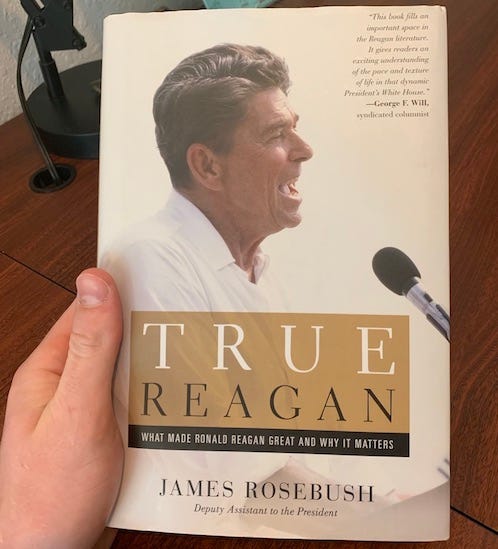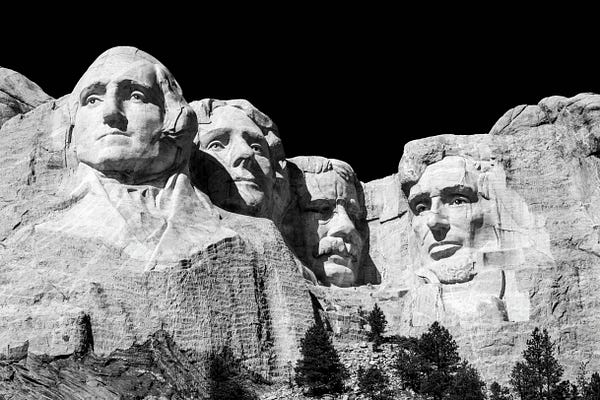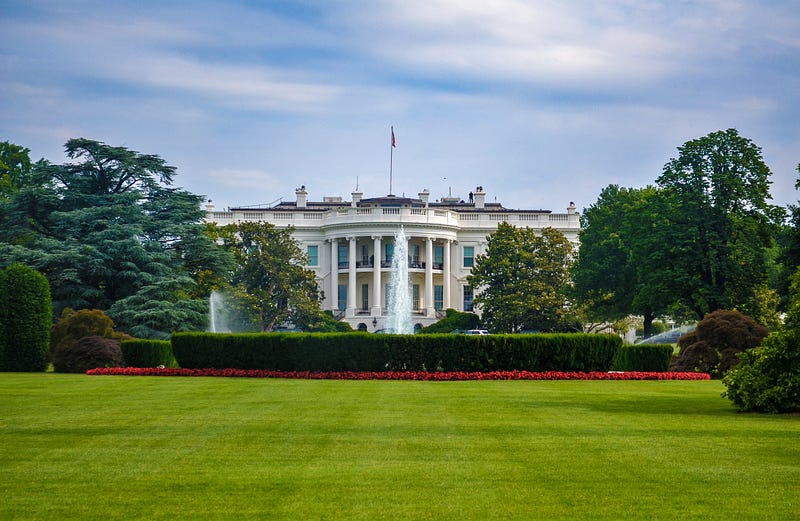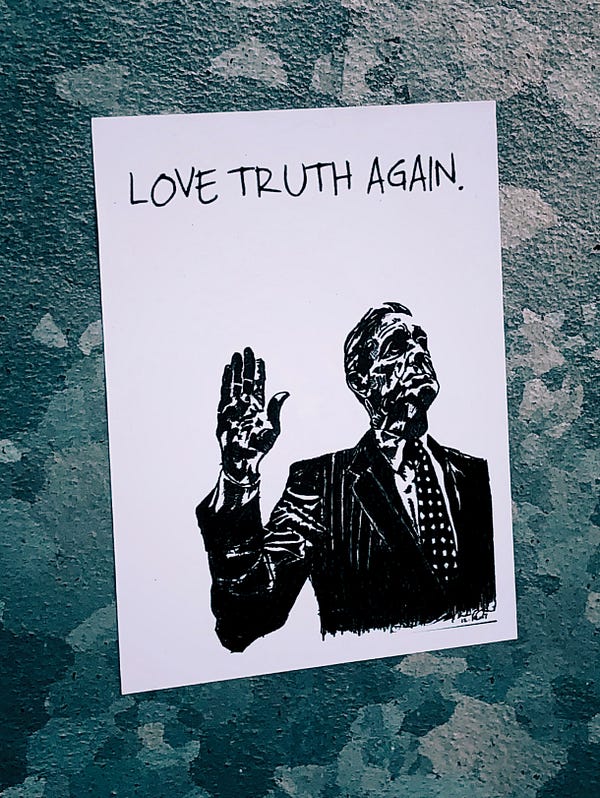True Reagan by James Rosebush

I had the pleasure of meeting James back in February of 2019 at an event I helped host with Alexander Golding and Helped Hope. Alex was insistent that I met James and we shared in a wonderful conversation. After we chatted for a little while, we talked about reading and he mentioned the book that he had recently published, this book on Ronald Reagan. It was spectacular and undoubtedly one of the best books that I have ever read. Not only did I love the writing, but the admiration and respect I have for Ronald Reagan also grew immensely as well.
The beginning of the book shared Reagan’s life view and some of the perspective that he carried with him throughout the entirety of his life. Reagan the lifeguard, I loved that. As the leader of the United States, one of his responsibilities, I believe, should be to care for the American people. I believe it’s imperative that we live out our values and after reading through this book, I see Reagan did just that throughout his presidency and his life.
Pg. 7, His life and his values are inseparable from what he was able to accomplish in public office, and that is the greatest Reagan leadership lesson of all. Reagan’s beliefs provide a road map to his genuine core.
I believe he always saw himself as a lifeguard — ultimately on a much larger river — on a larger mission. Reagan the lifeguard. It explains a lot. As a lifeguard while growing up, he saved 77 lives.
He was courageous in his willingness to go to battle over ideals — when he thought it was warranted — for the cause of freedom and democracy in the world.
What President Jimmy Carter said about Ronald Reagan is something that I hope people will be able to say of me in the future. I live by my values and I want every action that I partake in to express what I believe.

Pg. 21, President Jimmy Carter said of Reagan, “He had unshakable beliefs and was able to express them effectively, both in America and abroad.”
I love the shared respect for language that both Abraham Lincoln and Ronald Reagan had, I agree. I know that language and words have incredible importance, especially when used to influence others. Beyond that, the Bible is the greatest roadmap for right living and I have tremendous respect for anyone who spends time memorizing great parts of it.
Pg. 28, Lincoln joined with Reagan as a man also from humble beginnings. Both were born in the state of Illinois; both spent their early years memorizing the Bible and valued its contents, not only as truth but as a luminous and inspiring pattern for communicating. They shared a unique legacy and respect for language — its uses and its power.
I relate to this. I feel that most people do not really know who I truly am. They may know the image that I portray and the things that I do. Yet, beyond that general level, most have no idea what truly drives me and most who don’t know don’t care. Sharing my innermost thoughts and vulnerabilities is not something I care to do. People are usually satisfied knowing a little bit — why share more?
Pg. 44, In a way this was something both Reagan and his wife, Nancy, shared: They tightly controlled and managed who they were and to whom they would reveal themselves — that is, what they would reveal about their innermost thoughts and vulnerabilities.
Relatable relatable relatable for me.
Pg. 62, Even his own wife, Nancy, wrote, “There’s a wall around him. He lets me come closer than anyone else, but there are times when even I feel that barrier.”

While growing up, Reagan often felt he could only rely on himself and could not confide in anyone else. This may be one reason for the wall around him — I can attest to that being one reason for the wall around me.
Pg. 65, Reagan was not a placid, insensitive person. He was just afraid of letting people (including some family members) too close to what he felt.
This is inspiring and something that I hope our next president is able to do also. We can never do alone half of the things we could do with God.
Pg. 67, In The God Strategy, Kevin Coe and David Domke concluded that Reagan “altered the nature of religion and politics in America.” They found that until Reagan, Presidents had mentioned God in an average of 46 percent of all the speeches they gave. Reagan’s God and Bible references increased to a whopping 96 percent of all his speeches.
More and more research continues to be done to show this. I think that it is incredibly true. It’s important to not focus on yourself when speaking but rather to shine a spotlight on the audience, and Reagan did that incredibly well on a consistent basis.
Pg. 73, Instead of focusing on himself when speaking publicly, Reagan always turned the spotlight on his audience. He usually honored them — proving the truth of the adage: “People will like you better if you tell them their virtues rather than their faults.”
My respect for Ronald Reagan grew immensely after reading this part. I want my life to be directed by God. I desire for my personal relationship with God to be the driving force in all that I do and all that I become. I’m so glad that Ronald Reagan was able to be an example of how to do just that.
Pg. 74, In order to define him accurately we have to shift our point of reference away from a strictly political context. Once we do that, we see a man who was basically and primarily spiritually minded or faith oriented; and by that I mean that he was a man motivated in everything he did by his overriding personal relationship with his God.
I think that this is an incredible skill to master. It’s important that we give some of ourselves to people but we should not give 100% of ourselves to each person that we encounter.
Pg. 84, Even in an exchange as mundane and personal as that, he would treat you as if you were his best friend — and yet there was an undertone of impersonality or slight detachment about it that was difficult to describe. This quality, though subtle, was also felt and observed by many others, and it was apparently with him throughout his life. I believe it gave him his ability to deflect criticism, stay focused, and be a strong leader without complicating his own personality.

I love this advice and have talked to a few people about it. When recently sharing it with my Dad, he nodded in agreement and said he does much the same thing during his frequent presentations. It’s important to focus on communicating effectively and focusing the speech on a personal level.
Pg. 119, “Find one imaginary or real person in the audience and speak directly to him while letting your eyes scan the whole audience with a broad sweep, not alighting on any one specifc person so that no one feels excluded from your verbal grasp and no one feels targeted with a fixed gaze. Don’t get caught up in the feeling or fear of being overwhelmed that you are communicating with a mass of people. Imagine just speaking to one person who needs to hear what you have to say and respects it. Don’t get caught up in guessing what your critics might be saying” After Reagan taught me that, I was especially observant of his speeches to see if he followed his own advice — and of course he did.
Something that has stayed in my head recently is a post on Instagram from Dan Lok. He asked, “Would you rather be right or rich?” There is no need to always be right, we do not always need to correct people when they are wrong and we do not always need to share everything that people are asking for, it’s just not always important. I LOVE the imagery of a well and not a fount. While a well has great volume of water (information), it is not easily accessed and for good reason.
The second Reagan tactic shared from this page is exceptional. It is very valuable to be able to reiterate core values. Beyond that, it’s essential to be able to remind our audience of the most important points.
Pg. 137, Reagan often advised me to “Be a well and not a fount” when referring to the assertively inquiring media. I should be a well of information, but that I shouldn’t spout unnecessary details in an undisciplined way unless asked specifically for them — and perhaps not even then.
Another Reagan tactic was to recall, when challenged, the main message he was conveying and to not deviate from it, making every attempt to weave or reweave the original points into his reply.
This quote was featured within the book and one that Reagan held close to heart.
Pg. 161, “I know in my heart that man is good, that what is right will always eventually triumph, and there is purpose and worth to each and every life.”

This is the approach I strive to take. God calls us to share His word and His love. But, it is also very clear in the Bible that while it is our job to make disciples of the nations, only God can soften people’s hearts. Along with that point, I agree with the perspective Reagan practiced. It is up to us to share what we believe and lay out the options yet leave the decision up to the individual.
Pg. 165, While I have called Reagan an evangelist for conservative ideals and ideas, he did not attempt to convert or to prejudice another’s point of view; instead, he laid out the options. He did not force his voice into anyone’s home, but he was grateful to be welcomed there.
I love the “headlights-on approach” that James shared Reagan had. Evil is going to be present in this world, it is a fallen world with sin. Each of the greatest most influential people that I admire and have great respect for shared this belief or attitude. The lifelong attitude that everything would be all right. The most successful people all have a sense of optimism paired with hard work.
Pg. 170, Reagan held a lifelong attitude that everything would turn out all right. But Reagan was ready to do battle with evil, whereas most people take a detour when it comes to facing down a powerful force of wrongdoing. His courageous confrontation with evil deserves respect, and this may have been his strongest contribution as an American leader.
In Reagan’s advance toward evil, there was in what he said just a headlights-on approach. It is important to note, though, that he was not arguing or pleading for anything. He was stating the facts and building a case for other people to see evil as he did.
At the end of the Cold War, Reagan responded without taking credit for the war — as was characteristic of him. Evil is impersonal to me also and is just something to combat; in my eyes there is not one person more evil than another.
Pg. 171, When asked during the visit to Moscow in 1988, if the “evil empire was no longer evil,” he admitted that was correct, owing to its significant reforms — thus proving that he saw evil impersonally.
Again with the Cold War, this was one of the methods that he undertook. He strived to appeal to the hearts and minds of people and ultimately did so very successfully.
Pg. 174, Reagan knew that his was a war of ideals and felt he could win the hearts and minds of a majority of any people living in tyranny by calling out a lie, as well as engineering many other complex military, diplomatic, trade, and cultural initiatives — all of which were pieces of his mosaic.
I highlighted this spot because James Rosebush was able to observe the White House and its operations at a very intimate level — one I may not get to experience. I believe it is important to understand how the government works and which individual is responsible for what.

Pg. 198, After observing this up close, I had to admit there is actually no overall Chief Operating Officer for the vast U.S. Government as a singular entity. Any President is held accountable for developments in the U.S. government during his time in office, but he is rarely involved directly in its operations. Cabinet officials and agency heads become the closest to acting like Governors of the states with responsibility for their own territories or agencies. The Director of the Office of Management and Budget position comes closest to assuming the Chief Operating Officer role.
This is one of the greatest ways to build trust and show empathy. We must show that what we have been through is difficult maybe, but that it is possible to endure. Everyone has experienced troubles of some sort.
Pg. 213, Because Reagan had been through these troubles and survived, he knew that most other people had troubles as well, and he did not want to appear superior to them just because he had conquered his challenges and came out as a survivor.
I agree. God has different missions and purposes on earth for each person and while no purpose is greater than another in the eyes of God, they are all different.
Pg. 220, This led him to write, years later: “The American dream is not that every man must be level with every other man. The American dream is that every man must be free to become whatever God intends he should become.”
I agree. When Moses led the Israelites through the wilderness in the book of Genesis, God provided a daily supply of manna. Yet, He did not provide more than simply a day, He wanted the people to know that He was the one they should rely on — not on themselves. Reagan’s concern is valid and especially during Russia’s communist regime, Reagan was able to see this firsthand.
Pg. 228, What made Reagan’s perspective unique was that to him the greatest evil of a government grown dominant over its people could be its potential to separate a man from his God and to deny access to Divine Providence by replacing it with dependence on and allegiance to an all-powerful state. This had occurred in his lifetime under communist regimes, where atheism was the state deity.
This is so so well phrased. While we may appear different, while one person may appear smarter, while one person may appear less attractive, while one person may appear stronger — that does NOT mean we are not all equal in the eyes of God. We are ALL God’s creation and ALL equal. I totally agree, our origins matter less than our destination. The roots of democracy emphasize that yet still, 30 years later, I don’t see modern democracy reflecting what Reagan reiterated.
Pg. 244, He insisted, in his 1992 convention speech: “Whether we come from poverty or wealth; whether we are Afro-American or Irish-American; Christian or Jewish, from big cities or small towns, we are all equal in the eyes of God.” He added importantly, “But as Americans that is not enough. We must be equal in the eyes of each other. We can no longer judge each other on the basis of what we are, but must instead start finding out who we are. In America, our origins matter less than our destinations, and that is what democracy is all about.”
Ronald Reagan emphasized and focused on diversity and opportunities for all. As shared just a little earlier from his 1992 convention speech, “Our origins matter less than our destinations,” and Reagan did wonderful work for minorities during his Administrations.
Pg. 249, The results of this focus are seen in the numbers. During his Administrations the number of black-owned businesses increased by 40 percent and Hispanic-owned businesses increased 81 percent; the number of blacks enrolled in college rose 30 percent, and for Hispanics this figure was 45 percent. Real median income for black families rose 17 percent, with an increase of 40 percent in the same (black) households making more than $50,000 per year, while unemployment for black males decreased nearly 10 percent.
“You will now understand the pain of the world.” That is necessary. We NEED to understand and empathize with others. That is why many people tell us that we need to share our testimonies, our stories, and our experiences.
Pg. 253, As I stood by, I heard Mother Teresa tell the President that after he was shot, she and her order spent two days praying for him. She told Reagan, with unexpected meaning and sincerity: “You have suffered the passion of the cross and have received grace. There is a purpose to this. Because of your suffering and pain, you will now understand the suffering pain of the world. This has happened to you at this time because your country and the world need you.”
These are 5 things that we can all do in our lives to practice integrity and great leadership. It is important to maintain consistent to our values, to relate to others, to combat evil, and to believe in the people that make up the world. I believe all 5 are extremely important and valuable for everyone to live out. Most people do not do all 5 — those that do usually change the world.
Pg. 262, Here are five of his many durable and timeless precepts for leadership as I see them. These begin to answer the question: Why does Reagan matter? I encourage the reader to add to this list.
- He related everything he did, spoke, wrote, and felt to a larger and longer historical context.
- He was committed to denouncing and defeating evil wherever he detected it. And he did.
- He never gave control to the enemy. He never subordinated American interests to those of our allies and certainly not to our enemies.
- He never abandoned his commitment to American leadership anywhere in the world where people suffer from a lack of freedom. He evangelized democracy globally to share its fruits and to protect Americans.
- He was convinced that the principles of American democracy represented the best form of human government the world has ever witnessed, and he believed in its divine destiny.
I highlighted this part because I was inspired — as I always am — by the relationship that James has with his wife. I also had the honor of meeting her in February of 2019 and she was extremely charismatic and quite the conversationalist. Beyond that, I could tell right away how big of a fan she is of her husband James.
Pg. 266, It was extraordinarily helpful to have a loving family supporting me all the way with this book, but it is doubly beneficial to have a wife who is also an accomplished editor herself and who was liberal with red ink and useful suggestions — always inspiring me over the finish line. — James Rosebush

This book taught me a lot not only about Ronald Reagan but also about being a Christian, having strong values, and leading others effectively. I strive to let others see my values and what I believe through my actions. While I am not always able to do that effectively due to my imperfection, I can continue to strive towards improvement and use Ronald Reagan and his legacy as an incredible example. I recently wrote about a Napoleon Hill Master Mind group and featured Ronald Reagan in mine (linked here). I loved this book and the way it was written as well as the things that were shared. If I am ever called to be a president, I strive to be one as effective and well-respected as Ronald Reagan was. Until then, I’ll continue to admire him and learn from his life and its lasting effects on the United States and the world.
I gave this book a 5/5